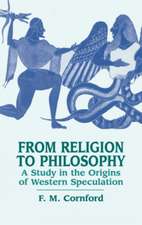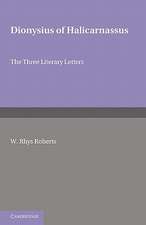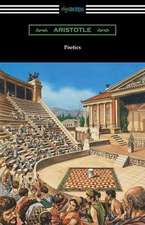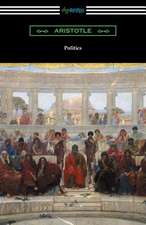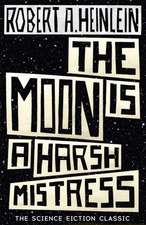Rhetoric
Autor Aristotle Ilustrat de Emily Lam Traducere de W. Rhys Robertsen Limba Engleză Paperback
- Aristotle, Rhetoric
Aristotle's Rhetoric is an ancient Greek treatise on the art of persuasion, dating from the 4th century BC. The English title varies: typically it is titled Rhetoric, the Art of Rhetoric, or a Treatise on Rhetoric.
Aristotle is generally credited with developing the basics of the system of rhetoric that "thereafter served as its touchstone," influencing the development of rhetorical theory from ancient through modern times. The Rhetoric is regarded by most rhetoricians as "the most important single work on persuasion ever written." Gross & Walzer concur, indicating that, just as Alfred North Whitehead considered all Western philosophy a footnote to Plato, "all subsequent rhetorical theory is but a series of responses to issues raised" by Aristotle's Rhetoric. This is largely a reflection of disciplinary divisions, dating back to Peter Ramus' attacks on Aristotlean rhetoric in the late 16th century and continuing to the present.
Like the other works of Aristotle that have survived from antiquity, the Rhetoric seems not to have been intended for publication, being instead a collection of his students' notes in response to his lectures. The treatise shows the development of Aristotle's thought through two different periods while he was in Athens, and illustrates Aristotle's expansion of the study of rhetoric beyond Plato's early criticism of it in the Gorgias (ca. 386 BC) as immoral, dangerous, and unworthy of serious study. Plato's final dialogue on rhetoric, the Phaedrus (ca.370 BC), offered a more moderate view of rhetoric, acknowledging its value in the hands of a true philosopher (the "midwife of the soul") for "winning the soul through discourse." This dialogue offered Aristotle, first a student and then a teacher at Plato's Academy, a more positive starting point for the development of rhetoric as an art worthy of systematic, scientific study.
| Toate formatele și edițiile | Preț | Express |
|---|---|---|
| Paperback (7) | 44.94 lei 3-5 săpt. | |
| Dover Publications – 31 aug 2004 | 44.94 lei 3-5 săpt. | |
| – | 51.41 lei 3-5 săpt. | |
| CREATESPACE – | 59.75 lei 3-5 săpt. | |
| – | 59.97 lei 3-5 săpt. | |
| CREATESPACE – | 64.62 lei 3-5 săpt. | |
| A & D Publishing – 9 mai 2009 | 57.67 lei 6-8 săpt. | |
| Simon & Brown – 2 apr 2012 | 131.62 lei 38-44 zile | |
| Hardback (2) | 181.40 lei 6-8 săpt. | |
| COSIMO CLASSICS – 30 iun 2010 | 181.40 lei 6-8 săpt. | |
| – | 186.69 lei 38-44 zile |
Preț: 59.75 lei
Nou
11.43€ • 11.80$ • 9.54£
Carte disponibilă
Livrare economică 05-19 martie
Specificații
ISBN-10: 1499193491
Pagini: 182
Dimensiuni: 152 x 229 x 11 mm
Greutate: 0.27 kg
Editura: CREATESPACE
Descriere
Focusing on the use of language as both a vehicle and a tool to shape persuasive argument, Aristotle delineates with remarkable insight both practical and aesthetic elements and their proper combination in effective presentation, oral or written. He also emphasizes the effective use of language in achieving precision and clarity of thought.
Textul de pe ultima copertă
One of the seminal works of Western philosophy, Aristotle's Rhetoric vastly influenced all subsequent thought on the subject--philosophical, political, and literary. Focusing on the use of language as both a vehicle and a tool to shape persuasive argument, Aristotle delineates with remarkable insight both practical and aesthetic elements and their proper combination in an effective presentation, oral or written. He also emphasizes the role of language in achieving precision and clarity of thought.
The ancients regarded rhetoric as the crowning intellectual discipline--the synthesis of logical principles and other knowledge attained from years of schooling. Modern readers will find considerable relevance in Aristotelian rhetoric and its focus on developing persuasive tools of argumentation. Aristotle's examinations of how to compose and interpret speeches offer significant insights into the language and style of contemporary communications, from advertisements to news reports and other media.







